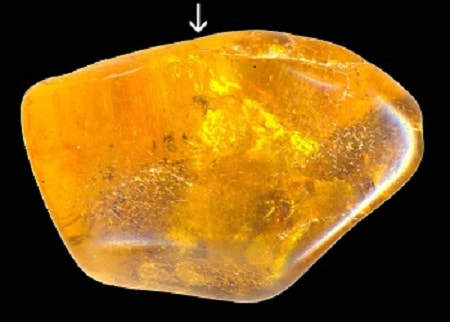Electrician
 When I was teaching, as part of the introductory activities on the first day of classes, I would ask participants about what they taught or about their work. If and when someone said that they were an electrician, I could respond by saying, “Did you know that the word electrician comes from an ancient word meaning petrified tree sap?”
When I was teaching, as part of the introductory activities on the first day of classes, I would ask participants about what they taught or about their work. If and when someone said that they were an electrician, I could respond by saying, “Did you know that the word electrician comes from an ancient word meaning petrified tree sap?”Yes, the ancient Greek word meaning petrified tree sap (amber) was elektron (in Latin, electrum). The Greeks noticed that when amber was rubbed with a cloth, small sparks could be produced. They also noticed that rubbed amber could attract other things to it. They called these sparks elektrons.
In the late 16th century, the English physicist William Gilbert (1540 – 1603) also noticed that amber exhibited this weak magnetic pull when charged with static electricity. In his treatise of 1600, De Magnete, he named this force electricus (from Latin, meaning ‘resembling amber’). By the 1640s, the terms electric and electricity were first used by an English physician Sir Thomas Browne.
At that time, the word electric described substances which, like amber, attracted other substances when rubbed. Later, in the 1670s, the term electric, meaning charged with electricity, referred to this physical force.
The word electrician, a scientist concerned with electricity, is from 1751. Electrician, meaning a technician concerned with electrical systems and appliances is from 1869. The phrase ‘electric light’ is from 1767, ‘electric blanket’ from 1930, ‘electric guitar’ from 1938, and ‘electric typewriter’ from 1958. The term ‘electric organ’ was coined in 1885 to name a hypothetical yet to be invented musical instrument!
Online Etymological Dictionary, https://www.etymonline.com/
Published on August 16, 2020 20:00
No comments have been added yet.



